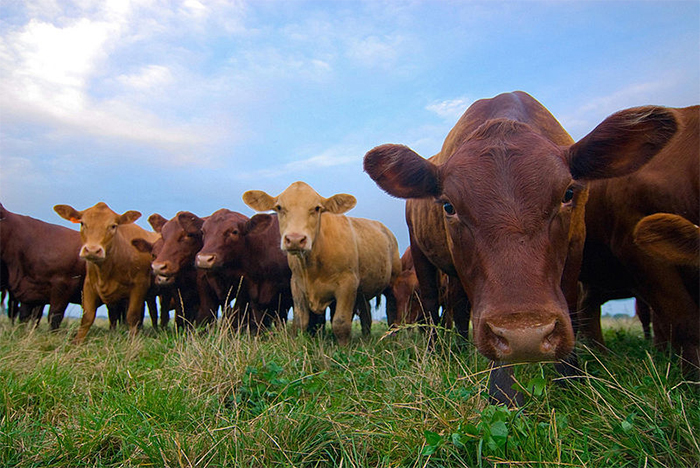
Traceability standards for beef products are once again the subject of debate as news emerged over the content of Findus' beef lasagne.
"This is a very serious issue" the Food Standards Agency declared.
"The evidence we have about the two cases, of the significant amount of horse meat in burgers and lasagne, points to either gross negligence or deliberate contamination in the food chain. This is why we have already involved the police, both here and in Europe."
The National Beef Association, who have campaigned for more stringent labeling of beef products, have highlighted the issue of undervalued beef sold in supermarkets.
"At the moment we are led to believe that no one in the manufacturing process was aware of horse meat been sold as beef, it makes one wonder when the processors were purchasing this bargain beef raw material that no one thought how can we be getting this beef at such a bargain price?" the association queried.
They made the case that such cut-price products were in danger of diluting quality and adulterating the beef with cheaper alternatives.
"Beef is expensive to produce and expensive to process but most mainstream supermarkets discount beef products" said Oisin Murnion, chairman of the National Beef Association.
Findus is the latest company to be caught up in the controversy surrounding contamination of meat products, which has affected companies in the UK, Irish Republic, Poland and France.
The company removed one of its products, which in some cases contained 100% horse meat rather than beef.
"We believe that these two particular cases - the frozen burgers from Tesco and the lasagne from Findus - are linked to suppliers in Ireland and France respectively" the Food Standards Agency said.
"We are working closely with the authorities in these countries to get to the root of the problem."
But National Farmers' Union said the issue had nothing to do with the 'integrity' of UK farmed products.
"Our members are rightly angry and concerned with the recent developments relating to contaminated processed meat products" said NFU President Peter Kendall.
"The contamination took place post farm gate which farmers have no control over."
"This has never been a farming issue but it is certainly an issue that farmers will be taking extremely seriously."
"We are concerned about the ramifications for the industry as a whole which is why we are meeting with retailers, food service companies, processors, as well as the FSA and Defra, to establish the facts and seek reassurance that the integrity of British food is maintained."
Recent events show that guaranteed origin, and full product integrity emerged as the key to higher earnings.
Oisin Murnion said: "The horsemeat scandal is a classic example of what happens when supermarket suppliers are squeezed in cost terms and consumers are encouraged to believe that beef, which they like and love to buy, is just as cheap as chicken or other less expensive meats."
Ten million beef burgers were withdrawn from sale in Ireland the UK last month.
Environment Secretary Owen Paterson said the situation is 'completely unacceptable' and promised action.
"Consumers can be confident that we will take whatever action we consider necessary if we discover evidence of criminality or negligence."
In Ireland, TD's are calling the horsemeat fiasco a 'criminal act against the economy' while police in the Irish Republic have launched an investigation.
Hamish McBean of the National Beef Association urged consumers to ask questions when they buy their beef and ask where it comes from.
A new protocol for the survey of food authenticity in processed meat products has been announced by the Food Standards Agency.
The protocol was drafted in collaboration with the Department for Environment, Food and Rural Affairs (Defra).
The survey will use specialised analytical techniques to provide information about the possible presence of horse or pig DNA in a range of beef products available to UK consumers.
It also aims to identify and understand factors that may lead to the presence of meat species that are not labelled as an ingredient, so that this can be explained, eliminated or correctly labelled.
This work is in addition to the preliminary sampling work that has already taken place.
It is planned that 28 local authorities across the UK will take a total of 224 samples in accordance with a detailed protocol.
The Farmers' Union of Wales welcomed the publication but called on the watchdog to 'further refocus' its work on tackling mislabeling and fraud.
"Those involved in and who have profited from fraudulent mis-labelling at every level of the supply chain should be punished" said FUW President Emyr Jones.
The aim of the protocol is to select products that are representative of goods on the market.
The samples will be taken in such a way that, if necessary, enforcement action can be taken to protect consumers.
The FSA will publish the results from the study, including brand names, and will disclose any formal action taken.
Jones said the revelations highlight concerns that the FSA has been preoccupied with issues which should not fall within its remit while allowing disturbing practices such as this to go on undetected.
"For many years the FUW has expressed concerns regarding the FSA's drive to see products which form part of a healthy diet, such as red meat, cheese and Marmite, branded as unhealthy."
